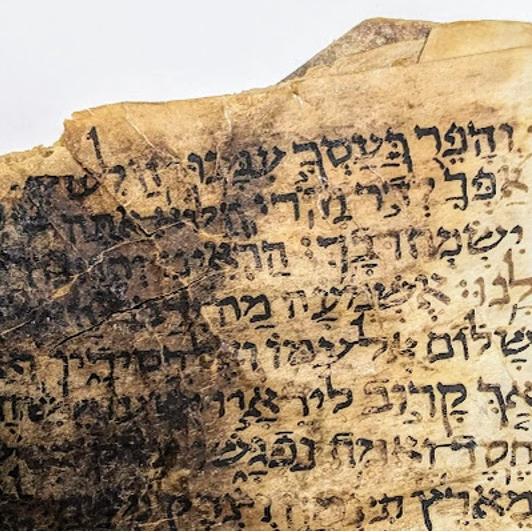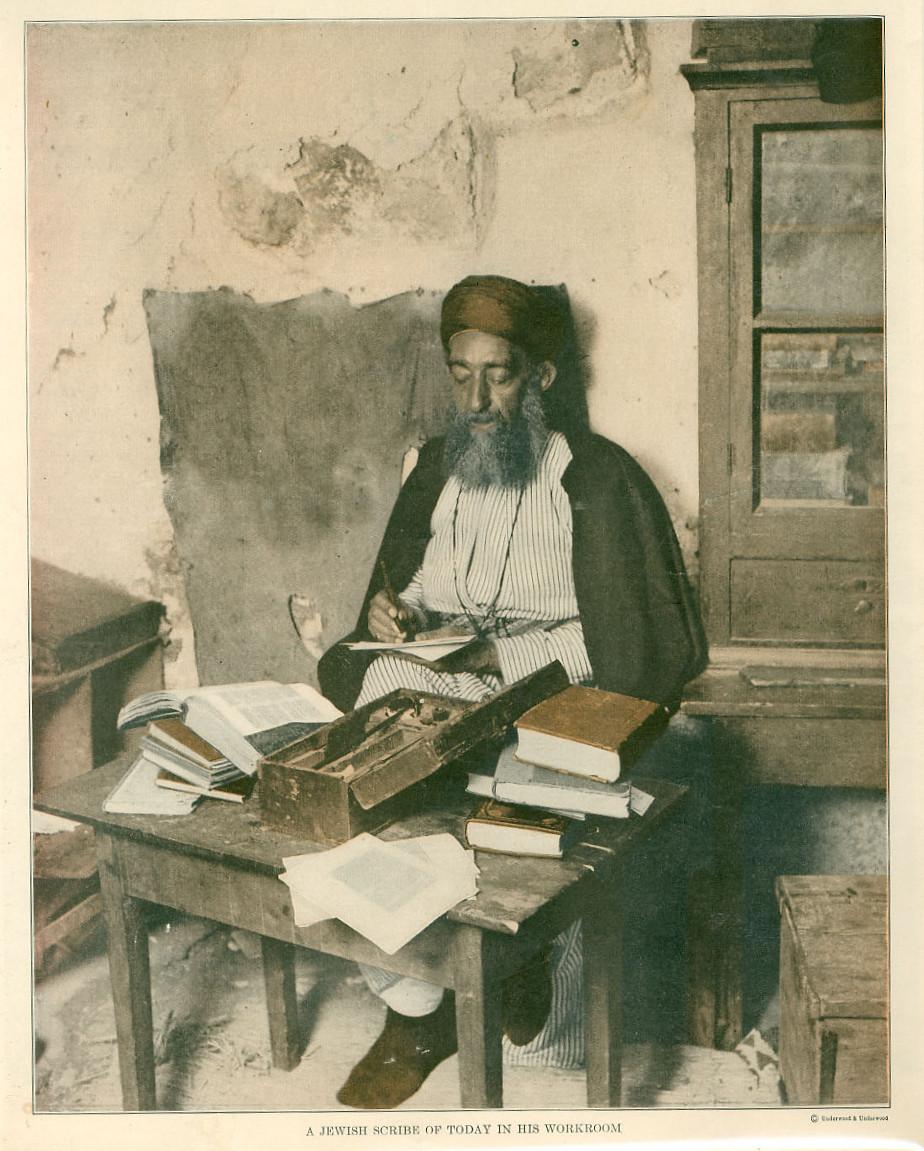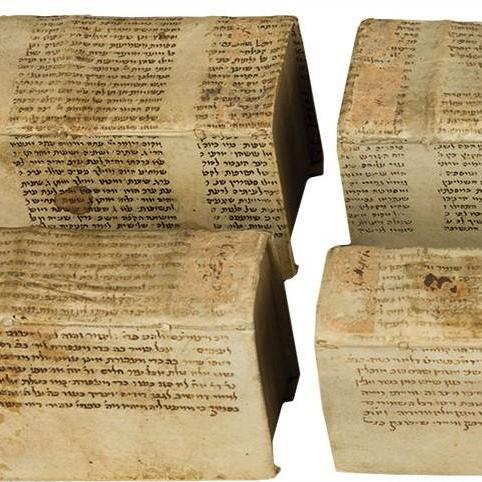New Acquisitions at the Library of the Katz Center
A vast new collection at Penn Libraries memorializes the cultural and historical importance of the city of Haifa
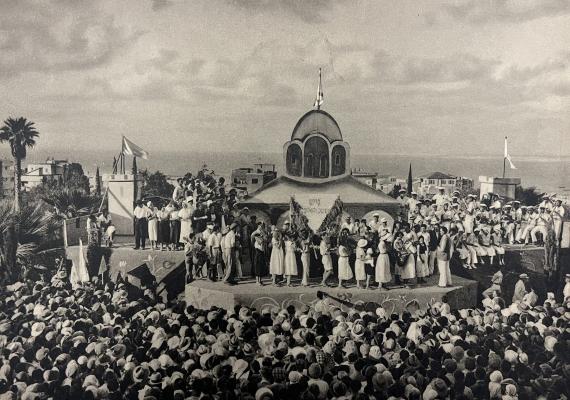
Photograph of The Festival of First Fruits, Haifa, ca. 1935. Nir and Inna Feldman Haifa Collection.
We are thrilled to announce the acquisition of the Nir and Inna Feldman Haifa Collection. The Feldman Haifa Collection is a unique urban archive comprised of one hundred discrete subcollections documenting the Israeli city of Haifa, dating mainly from time of the British mandate in Palestine through the early State of Israel. The earliest materials in the collection date from the 1860s and the latest from the 1960s. Its roughly seven thousand items consist of photographs (including early aerial photographs), negatives, photo albums, pocket albums, photo-illustrated books, rare books about Haifa, booklets, pamphlets, brochures, leaflets, exhibition catalogues, tour books, maps, diagrams, architectural plans, housing plans, color lithographs, binders of historical documents, engravings, a watercolor painting of Haifa and its port, a stencil booklet, two autograph poems by the Israel Prize–winning poet Shin Shalom, correspondence, four 16 mm films, and ephemera, such as
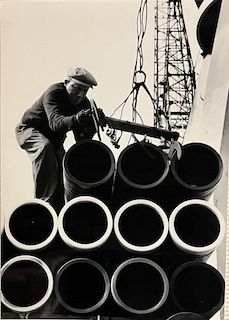
event and anniversary programs, posters (including posters of a 1925 labor strike, which may have been the first in the Yishuv and thus in Israeli history), postcards, telephone directories dating from the 1930s and 1940s with advertisements, textiles, and metal badges of youth movements in Haifa.
Among the Feldman Collection highlights are extensive archives of the German-Jewish photographer Rudolf Jones; the German-Jewish architect Eric Mendelsohn, who later came to Chicago, and was a rival of Frank Lloyd Wright; two Israel Prize–winning architects, Dora Gad and Alfred Mansfeld; the distinguished Haifa architect Munio Gitai-Weinraub; and the Haifa architect Moshe Gerstel and his son the architect Leopold Gerstel. Other items of interest are photographs of the Berlin-born photographer and cinematographer Robert Ziller (who worked with, among others, Alfred Hitchcock); thirty-nine unique, signed expressionist artistic photographs from Europe, ca. 1932, the work of Shmuel Narinsky, renowned for his photographs of the Land of Israel; early albumin photographs by the famous photographer Felix Bonfils, ca. 1860s; works of Shmuel Yosef Schweig; more than 250 photographs by Charlotte and Gerda Meyer and Amiram Erev for Solel Boneh, one of the largest construction companies in Israel, whose earliest headquarters were in Haifa; albums from the estate of Uri Brenner, a famous Israeli athlete, and from the estate of Reuven Alder, the Haifa media and strategic consultant; and photographs of the British Army during the Mandate period (1918–1947), including the inauguration of Haifa’s Central Railway Station, and other significant events in the municipality’s history.
Penn Professor Nili Gold in the Department of Middle Eastern Literatures and Societies at Penn, a native of Haifa, and author of Haifa: City of Steps (Brandeis University Press, 2018), has described the Feldman Haifa Collection as “an overwhelming treasure.” In addition to documenting and narrating the history of the beautiful port city of Haifa, the collection also demonstrates the transnational cultural and intellectual transfer that followed German-Jewish refugees from Nazi Germany to Mandate Palestine and brought architectural modernism and design to the building of Haifa as a bi-national, cosmopolitan home for Jews and Arabs. This collection is of interest to multiple interdisciplinary fields and disciplines, including design, architecture, global studies, art history, film and media studies, urban history, Middle Eastern history, political science, Jewish studies, Israel studies, and immigration studies, to name but a few.

